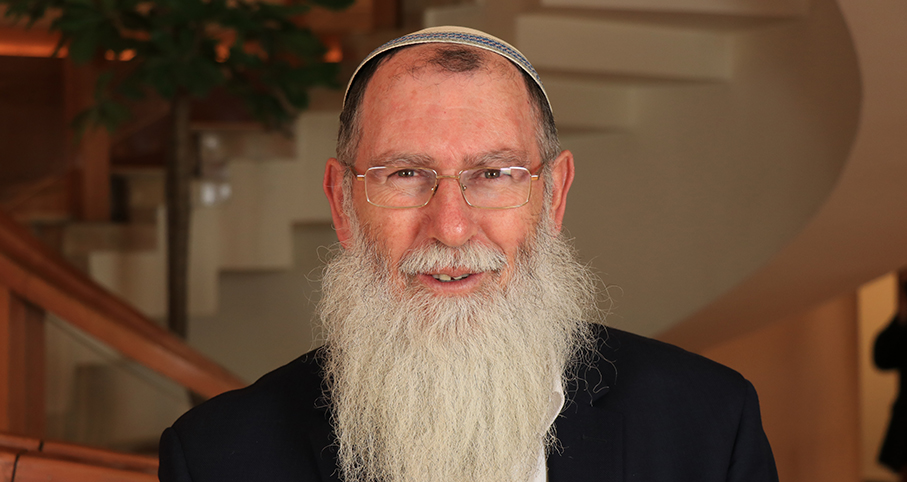Beit Midrash
- Sections
- Chemdat Yamim
- Bemare Habazak - Rabbis Questions
- Family and Society
- The Jewish Household
- Kashrut
Answer: The question is general(/theoretical?), so we will not ask clarifying questions. The issue of providing non-kosher food for Jewish customers is beyond our scope.
Most non-kosher foods are permitted in benefit. Some notable exceptions are chametz, wine with a concern of use for idolatry, and beef and milk that were cooked together. In such cases, one may not earn money from dealing with them, even if he does not own the food or get direct physical benefit from it (see Taz, Orach Chayim 150:6). However, it is not common for these foods to be forbidden in benefitaccording to all opinions. Regarding wine, many are lenient about benefit in times (like ours) where libations for idolatry are rare) (see Shulchan Aruch, Yoreh Deah 124:6; Rama, YD 123:1). Regarding meat and milk, many combinations are permitted in benefit (e.g., poultry, meat from a non-kosher animal, combined without cooking – learn Yoreh Deah 87). It is thus possible that one could work in a non-Jewish restaurant without violating a prohibition of benefiting from forbidden foods (see more in Tzitz Eliezer XVII:33).
Another issue is working professionally with food that is forbidden to eat. The gemara (Pesachim 23a) derives that even concerning forbidden foods from which one may benefit, one may not seek to obtain them for commercial purposes (sechora), just that he can sell that which came his way. According to most Rishonim (see Shut Chatam Sofer, YD 104-106, 108), this is a Torah-level law, although significant opinions among Rishonim and Acharonim say it is Rabbinic (see Noda B’Yehuda II, YD 62).
The Rashba (Shut III, 223) says that the prohibition’s rationale is that one who does commerce with food might eat it. Indeed, the prohibition applies only to things that are slated for eating (e.g., animals such as pigs, not horses). However, most (see Chatam Sofer ibid.) posit that the prohibition applies even if an owner is not in a position to eat the food.

Bemare Habazak - Rabbis Questions (636)
Rabbi Daniel Mann
175 - Disposing of Old Netilat Yadayim Cups
176 - Working in a Non-Kosher Establishment
177 - Conflict Between “Salvation Day” and Yahrtzeit
Load More
There are often additional grounds for leniency. Sechora is forbidden only regarding food forbidden by Torah law (Shulchan Aruch, YD 117:1). In many dairy eateries, the food is primarily forbidden Rabbinically, at least according to many opinions (again, beyond our scope). When the commerce is mainly not in the context of the prohibition of sechora, even if some is problematic, it is likely not forbidden (see Shut Chatam Sofer, YD 108). The classic example is one who raises animals for kosher meat and sells the forbidden parts of the animal to non-Jews.
Even when the prohibition of sechora does not apply, it might still be halachically required to refrain from situations where one could easily come to eat non-kosher food (see a variety of opinions in Yabia Omer IV: YD 6). One interesting source is the Maharsha on Rashi, Chulin 106a, who discusses one who, after separating the non-kosher parts of an animal, would cook them before selling them to non-Jews. The issue of the practical concern of eating may be influenced greatly by the type of contact with the food and the extent to which one has permission to eat freely from the food with which he is working (see Yabia Omer ibid.).
Some poskim were reluctantly lenient in cases of great need to allow people to work in non-kosher settings. However, the severity of the issues and the level of need vary greatly from case to case, and each case requires its own evaluation.

Rabbi Daniel Mann

Encouraging a Child to Criticize His Parent
5774

Tazria Metzora Question
5772

Calling a Kohen Who is a Katan
Av 22 5777

Reciting Kri’at Shema at the Very End of its Time
Sivan 21 5779

Ask the Rabbi: The Power of Rabbis in Berachot
Rabbi Daniel Mann | Shevat 5786

Ask the Rabbi: Witness Complication at a Wedding
Rabbi Daniel Mann | Shevat 5786

Ask the Rabbi: How to Tell When Your Tefillin Need Adjustment
Rabbi Daniel Mann | Av 5785























